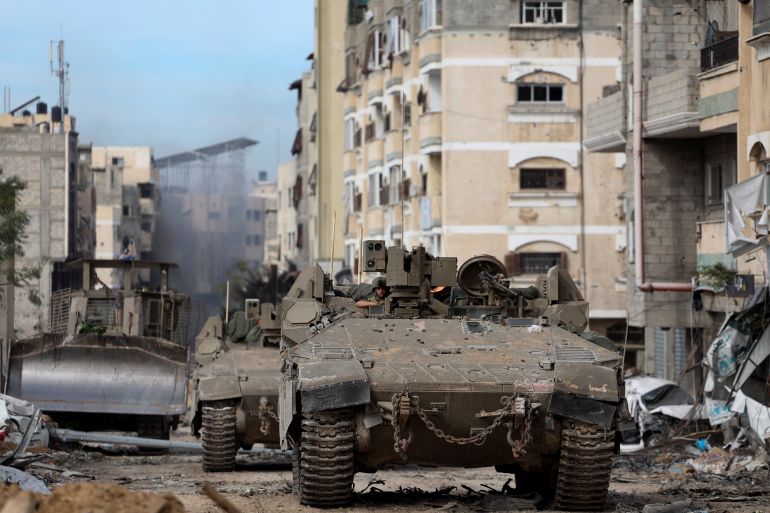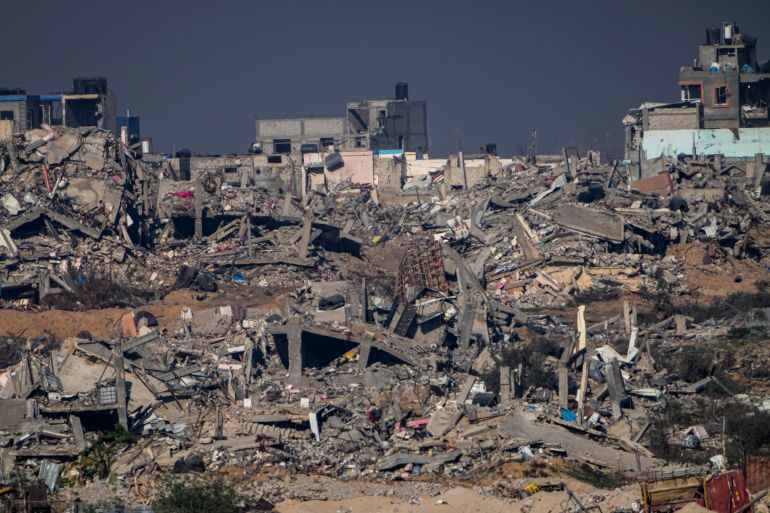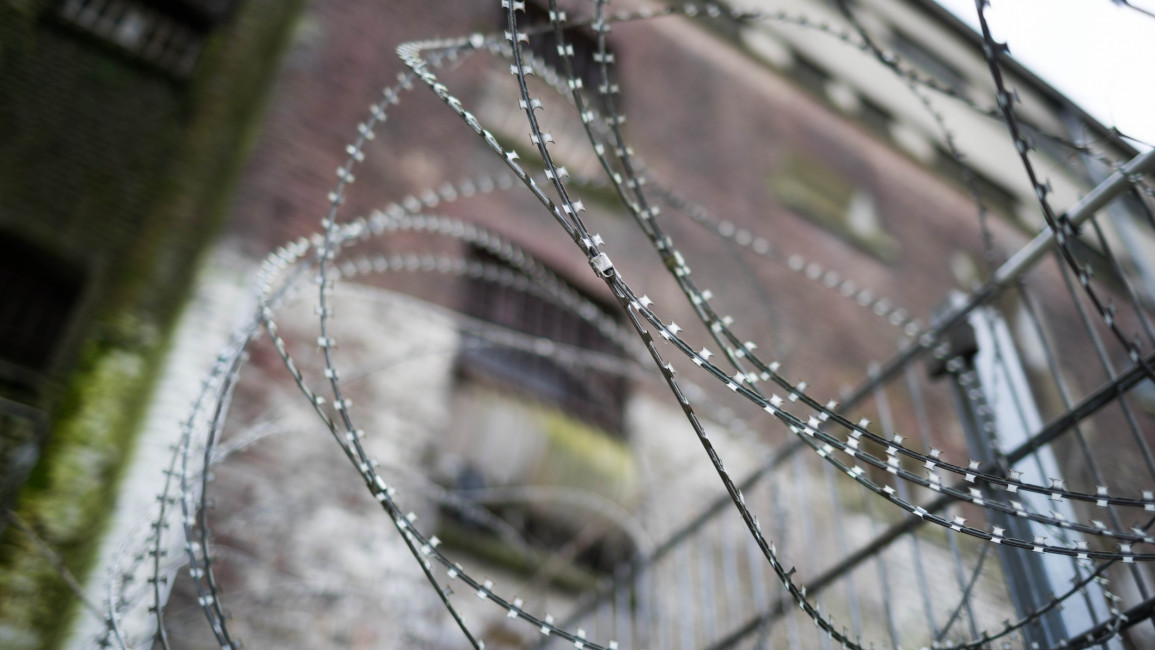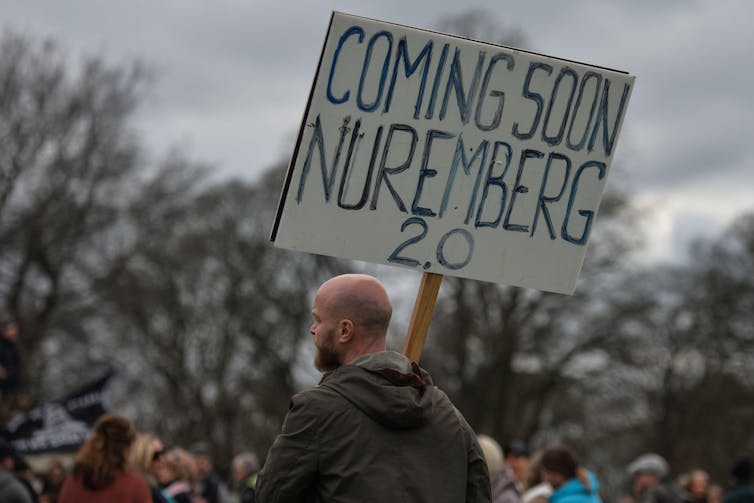NAKBA2
Tony Blair denies report linking him role in resettling Gazans
"The Channel 12 report in Israel linking Tony Blair to a discussion about a ‘role’ in the ‘voluntary resettlement of Gazans’ in Arab and other countries is a lie," Blair said.
Former Prime Minister Tony Blair denied a recent report by Israeli TV alleging he would help “examine” the possibility of Western nations accepting Palestinian refugees.
According to Channel 12, Blair was in Israel last week where he met with Prime Minister Benjamin Netanyahu and Benny Gantz to discuss him possibly taking on the role as a mediator in efforts to bring Palestinians out of Gaza.
National Security Minister Itamar Ben-Gvir was quick to welcome the report, saying: “This is a morally just step to take, first and foremost for Gaza border residents, and for all of Israel.”
Blair is now denying the report, calling it a lie: “The Channel 12 report in Israel linking Tony Blair to a discussion about a ‘role’ in the ‘voluntary resettlement of Gazans’ in Arab and other countries is a lie.”
“The story was published without any contact with Tony Blair or his team. No such discussion has taken place. Nor would Tony Blair have such a discussion, the idea is wrong in principle. Gazans should be able to stay and live in Gaza.”
Far-right ministers in Netanyahu’s government are advocating for the transfer of millions of Palestinians from Gaza as well as rebuilding Israeli settlements.
“We will be in security control, and we will need there to be civil [control]. I’m for completely changing the reality in Gaza, having a conversation about settlements in the Gaza Strip… We’ll need to rule there for a long time… If we want to be there militarily, we need to be there in a civilian fashion,” Finance Minister Smotrich said on Sunday.
“We want to encourage wilful emigration, and we need to find countries willing to take them in. We need to encourage immigration from there. If there were 100,000-200,000 Arabs in the Strip and not two million, the whole conversation about the day after [the war] would be completely different. They want to leave. They have been living in a ghetto for 75 years and are in need,” Smotrich told Army Radio.
UK's Blair denies link to role in
'resettlement' of Gazans
London (AFP) – Britain's former prime minister Tony Blair has strongly denied an Israeli media report linking him to talks last week about the resettlement of Palestinians from Gaza in other countries.
Issued on: 02/01/2024 - 
Channel 12 claimed on Sunday that Blair, who left office in 2007 and served as a Middle East envoy charged with building up Palestinian institutions, was in Israel last week.
The news channel said he held meetings with Prime Minister Benjamin Netanyahu and war cabinet member Benny Gantz about a mediation role after the war with Hamas.
He could also act as a go-between with moderate Arab states about the "voluntary resettlement" of Gazans, it added.
Expelling civilians during a conflict or creating unlivable conditions which force them to leave is a war crime.
The Tony Blair Institute for Global Change, a non-profit organisation he set up in 2016, said the report was "a lie".
"The story was published without any contact with Tony Blair or his team. No such discussion has taken place," it said in a statement on Monday night.
"Nor would Tony Blair have such a discussion. The idea is wrong in principle. Gazans should be able to stay and live in Gaza."
'Unwelcome person'
The Palestinian presidency in Ramallah lashed out at the report.
The presidency said it would demand that the British government "not allow this meddling with the fate and future of the Palestinian people".
"We also consider Tony Blair to be an unwelcome person in the Palestinian territories," it said, according to official Palestinian news agency Wafa.
The Channel 12 report came after two far-right Israeli government ministers called for Jewish settlers to return to the Gaza Strip after the war with Hamas, and said Palestinians should be encouraged to emigrate.
Finance Minister Bezalel Smotrich, who heads the ultranationalist Religious Zionism party, told Israeli army radio: "To control the territory militarily for a long time, we need a civilian presence."
He said Israel should "encourage" Palestinians to leave.
And on Monday, Israel's firebrand National Security Minister Itamar Ben Gvir said: "We must promote a solution to encourage the emigration of Gaza's residents."
UN chief Antonio Guterres and the head of the UN agency for Palestinian refugees, Philippe Lazzarini, are among those who have spoken out against the possible forced transfer of Gazans.
The Israeli ministers' comments drew condemnation from Hamas, the militant group whose October 7 attack from Gaza killed some 1,140 people in Israel, most of them civilians, according to an AFP tally based on Israeli figures.
Israel's relentless military response has killed more than 22,000 people in Gaza, mostly women and children, according to the health ministry in the Hamas-run territory.
UN agencies have voiced alarm over a spiralling humanitarian crisis facing Gaza's 2.4 million people, who remain under siege and bombardment, most of them displaced and huddling in shelters and tents, amid dire food shortages.
© 2024 AFP




 I
I











